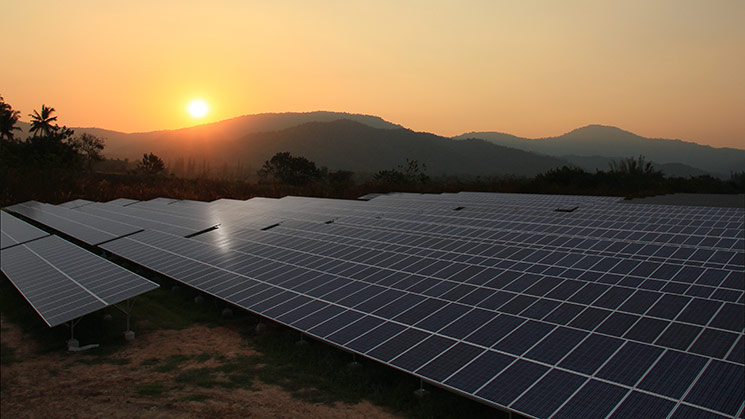SOLARTODAY April 11, 2014

It’s been an interesting month on the net-metering front. Investor-owned utilities (IOUs), led by their trade group the Edison Electric Institute, last fall launched a state-by-state campaign claiming that net metering creates an existential threat to their traditional regulated-monopoly business model. Beginning in 1982, net metering laws have been adopted in 43 states, where state legislatures were convinced that the practice was fair value to both utilities and all ratepayers.
IOUs want to slash net-metering rates, or impose high fixed-rate connection fees or surcharges, or eliminate net meter entirely. Where they’re successful, they will reduce the value of solar to homeowners and sharply cut the profits of third-party solar providers (often called leasing companies) like SolarCity, Sunrun, Sungevity and Verengo. The solar lease companies have formed their own lobbying group, The Alliance for Solar Choice (TASC) to defend net metering. TASC finds allies among local installer groups (state solar energy industry associations), advocacy organizations like ASES chapters and Vote Solar, and even with the new, conservative-leaning political group TUSK (Tell Utilities Solar won’t be Killed), now actively lobbying on behalf of solar in Arizona, Utah, Oklahoma, Louisiana and both Carolinas. The name was not chosen randomly: TUSK’s logo features an elephant, and the organization is co-chaired by Tom Morrisey, former chairman of Arizona’s Republican Party, and former Congressman Barry Goldwater, Jr.
While Vermont last month greatly expanded its net metering provisions, the battle continues in other states.
In California, where state law requires a replacement for the existing net metering system by the end of 2015, the Public Utilities Commission voted at the end of March to let existing solar owners keep their existing net metering contracts for 20 years from the time of installation.
Here in Colorado, the public utilities commission separated the issue of net-metering rates from the Xcel Energy rate-setting process. A series of meetings to hash out the value of rooftop solar is scheduled to begin April 29. Xcel, which now pays 10.5 cents per kilowatt hour, will argue that the rate should fall to 4.5 cents. TASC and allies like Vote Solar and the Colorado Solar Energy Industries Association (CoSEIA) will argue that the rate should reflect the savings solar provides in all costs of providing power to homes, including the costs of fuel, central power plants, transmission lines and pollution abatement.
Xcel’s home state of Minnesota has already begun that process to determine the value of solar (VOS). The result may turn out to be a rise in rates paid to solar homeowners. In Austin, Texas, where the municipal power company pioneered the VOS concept, the VOS tariff paid to solar homeowners dropped from 12.8 cents/kWh to 10.7 c/kWh in January, due mainly to the reduced cost of generating electricity with natural gas.
Louisiana’s Public Service Commission last month decided to hire a consultant to figure out VOS issues, and after a false start in the bidding process now hopes to name that consultant within a month.
Check in with your local Chapter of ASES to find out what’s going on in your state. It’s time to defend the progress we’ve made.
Casting Loose from the Grid?
While all this is going on, the Rocky Mountain Institute issued a report claiming that the real long-term threat to regulated utilities lies in the falling cost of energy storage systems. Driven by the growing popularity of hybrid and fully-electric cars and delivery fleets, efficient batteries are growing cheaper. That process will accelerate rapidly as Tesla and Panasonic carry through plans to build the world’s largest battery factory somewhere in the American Southwest.
When solar homeowners can afford to store their own electricity in a big, cheap battery bank, they’ll no longer need the grid, RMI argues. In less than 20 years, if electricity prices continue to rise, consumers will begin to leave the grid in droves, just as cell phone owners have cut loose from land lines over the past decade. More
Webinar on Concentrating Solar Power
Abengoa, SolarReserve and SEIA will participate in a free-to-view webinar about CSP’s storage capabilities and the potential for new projects, next Wednesday, April 16, at 1:30pm Eastern Daylight Time. More
UPCOMING EVENTS
PV America
SEIA, Boston, June 23-25
CSP Today Energy Storage Conference
San Diego, June 25-26
Solar 2014
Intersolar NA, San Francisco, July 6-10
ASES National Solar Tour
Nationwide, October 3-5



